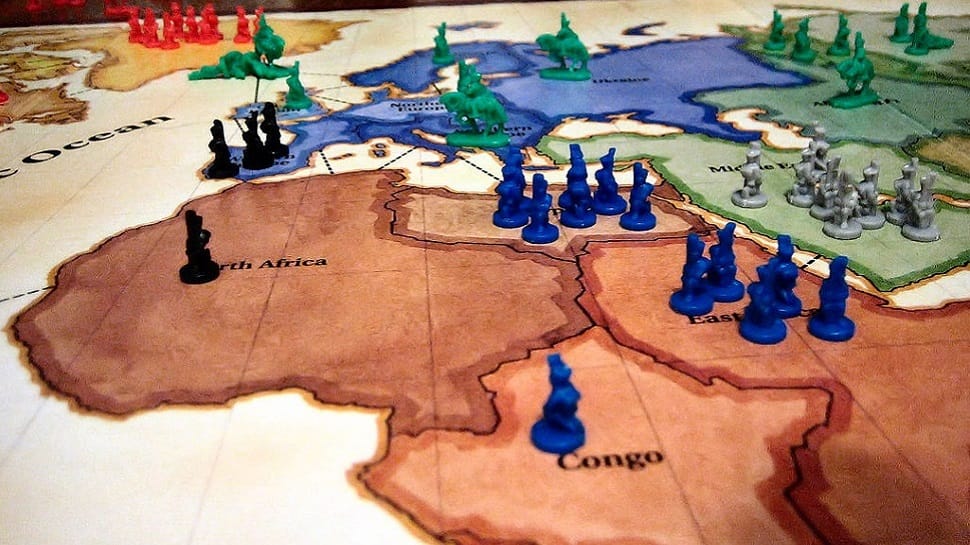Playing Risk

One of my favorite memories growing up was playing Risk with my brothers and cousins when we would visit Island Park in the summer. When it was a rainy day we would pull the game out and sit for hours in the loft of the cabin eating cheap candy and planning how we would conquer the world. We would get frustrated at each other when we took too long on our turn, trying to make the move with the least amount of risk and the highest reward. That's probably why it's called Risk, and also why it takes forever to finish a game (I can only remember a few instances when we actually finished a game, I think most people can relate).
When is the last time you took a calculated risk?
It probably wasn't when you moved your troops on the other side of the globe to try to conquer Asia. You might be thinking of the last major decision you made such as buying a house or a car, moving to a new home, or whether to accept or turn down a job opportunity.
You might also be thinking of something smaller and less significant like whether to order the same kind of ice cream at your favorite custard place or to try a flavor you've never had before (I mention this because I had this dilemma only this last week).
Why do we take risks? Why is taking risks important? Is it even a good idea to take risks? Let's start there...
Most of us have heard the phrase "The comfort zone is a beautiful place, but nothing ever grows there", and it's true! Let's look at Walt Disney, for example. In his early years as an entertainer and entrepreneur, he started a studio called the "Laugh-O-Gram", which eventually went bankrupt. He took the risk of trying again and again to produce some form of profitable entertainment, and eventually came up with Mickey Mouse in 1928, and we all know how well that paid off! If he had thrown his hands up and said "I quit, it's not worth it", we wouldn't have a Disneyland or Disney World. That thought gives me chills.
Let's bring it back to you... why do you make the decisions you do? Every choice in life is a calculated risk and it involves two sides of our being: emotion and logic. Let's face it, we're emotional beings. If I really want ice cream but I know my stomach will hate me after, my emotions overpower the logic and I end up with a stomach ache at 12:30 AM.
Let's look at a more serious example: What do you do when faced with a new job opportunity, or deciding whether to go back to school to finish a degree, or whether to invest in that new startup company?
Amy Morin, the author of "13 Things Mentally Strong People Don't Do" suggests that we consider these 8 questions to help conquer our fear of taking risks and to put the risk into proper perspective:
- What are the potential costs?
- What are the potential benefits?
- How will this help me achieve my goal?
- What are the alternatives?
- How good would it be if the best-case scenario came true?
- What is the worst thing that could happen and how could I reduce the risk it will occur?
- How bad would it be if the worst-case scenario did come true?
- How much will this decision matter in five years?
I have personally taken the time to answer these questions regarding a risk I was reluctant to take at work. I recognized that my emotions we're taking control of my decision-making process and I wasn't taking the risks I needed to be more successful. After answering these questions honestly, I have seen better results and have experienced a boost in confidence!
Amy Morin said in her book:
“Success won’t find you. You have to pursue it. Stepping into the unknown to take carefully calculated risks can help you reach your dreams and fulfill your goals.”
I couldn't agree more.
Life is full of gigantic and mini calculated risks. If you're struggling to pull the trigger and take the risk, take time to answer all 8 of these questions. When you do ,you'll see your emotions and logic come together like chocolate and peanut butter and you'll either have the sense to not take the risk or the courage to do so. Yum.
We're all in this game of risk together. The question is, what will you do when it's your turn?
